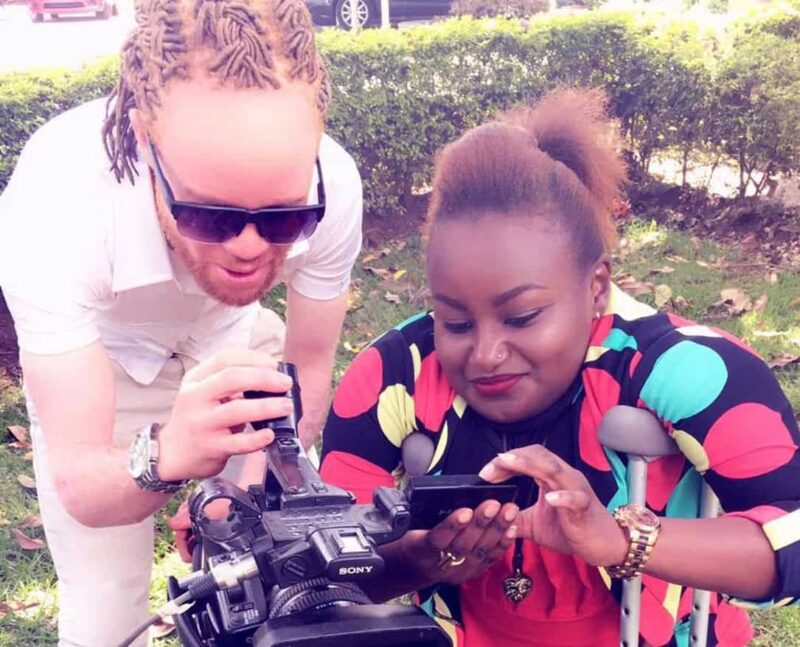I recently posted a tweet on the do’s and don’ts of disability reporting. In my tweet I stated that journalists should use terms like “persons with disabilities” as opposed to “disabled” or “handicapped.”
Although Kenyan journalists appreciated my tweet, I was surprised by the strong reaction I received from people with disabilities in Europe and the US. Several stated that they preferred to be called disabled.
Cultural differences in disability terminology
This got me thinking about cultural differences in identifying persons with disabilities. Terms which are accepted in African countries might be considered offensive in European countries and vice versa. For example, phrases like “differently abled” or “abled differently” are not offensive in Kenya but are shunned by the British Disability Movement, which considers them patronizing.
Further, reactions to my tweet revealed that persons with disabilities in Kenya were uneasy with the language used to report disability in the media. Most often, journalists’ language focuses on the impairment rather than the abilities of persons with disabilities. This kind of reporting entrenches a world view which considers disability as a defect.
Most journalists from Africa I encounter are unaware of the proper usage of terms regarding disability. Reporters have used words like defective, and handicapped when reporting about disability. Other terms characterize persons with disabilities as victims or pitiable, reinforcing negative stereotypes.
Aspects of language to consider when reporting on disability
In the same vein, too many reporters frame success stories of people with disabilities as inspirational. Doing so is counterproductive because it portrays persons with disabilities as abnormal people achieving normal goals.
In his article on disability-friendly language, Senior Inclusion Technical Adviser at Sightsavers, Shikuku Obosi, singles out three aspects of language which can discriminate. First, language may give unnecessary extra visibility to a factor such as sex, ethnic origin or disability. Second, it may define people in stereotypical ways, rather than illustrating the range of skills that they possess. Finally, language used to describe a group may be discriminatory if it is imposed on the group rather than selected by them.
Paul Chadwick writing in The Guardian argues that journalists need more than goodwill when writing about disability. He argues that physical or mental illness or the disability status of the subject should be avoided unless it is genuinely relevant to the story.
The National Center on Disability and Journalism at Arizona State University has developed a style guide that can assist journalists reporting on disabilities, with close to 200 words and terms commonly used when referring to disability.
Basic guidelines when reporting on disability include:
- Journalists should only refer to a disability when it is relevant to the story.
- Journalists should ask the source how they would like to be described. If the source is not able to provide the information, a family member or local Disabled People’s Organisation (DPOs) should be consulted.
- Journalists should avoid made-up words like “handicapable” unless using them in direct quotes.
- Whenever possible, the person with the disability should be interviewed as the expert, not a nondisabled professional or guardian.
In conclusion, the general rule of thumb for reporting disability should be that when a journalist is unsure about language choice, they should ask the expert. In this case the expert is the disabled person whom the journalist is interviewing.
Jackline Lidubwi is the Project Lead for Integrating Disability Rights into Journalist Training in Africa, a two-year Internews project to increase the quantity and quality of media coverage of persons with disabilities in Sub-Saharan Africa.
Increased news reports, articles and stories that provide accurate and balanced portrayals of disability will keep the public and policymakers informed, promote greater accountability, and ignite conversations that will change social norms and attitudes regarding disability.
